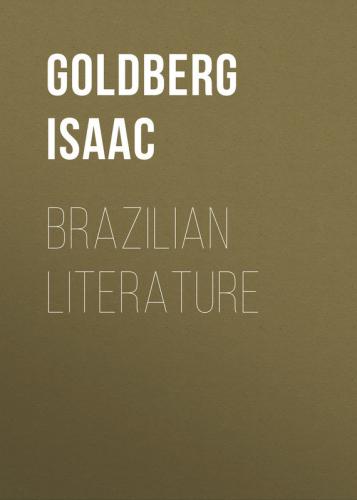7
Ronaldo de Carvalho.
8
Rio. 1902. (2a Edição, melhorada pelo auctor.)
9
Op. Cit. 16-17.
10
De Carvalho. Op. Cit. P. 27.
11
Saudade. Compare English
12
Rufino José Cuervo (1842-1911) was called by Menéndez y Pelayo the greatest Spanish philologist of the Nineteenth Century.
A species of national pride finds vent in philological channels through the discovery of “localisms” in each of the Spanish-American republics. At the most this is of dialectic or sub-dialectic importance, but it illustrates an undoubted trend and supports Cuervo’s contentions.
13
New York, 1921. Second Edition, Revised and Enlarged.
14
Estudos de Literatura Brazileira. Sexta serie. Rio de Janeiro, 1907. Pp. 47-133.
15
An important monthly published at São Paulo, then under the editorship of Srs. Afranio Peixoto and Monteiro Lobato.
16
Note, for example, the various spellings of the word
17
The famous Portuguese seat of learning at Coimbra.
18
João Ribeiro. A Lingua Nacional. São Paulo. 1921.
19
Varnhagen, in his Introduction to the
20
The wise Goethe once said to Eckermann: “The poet, as a man and citizen, will love his native land; but the native land of his poetic powers and poetic action is the good, noble and beautiful, which is confined to no particular province or country, and which he seizes upon and forms wherever he finds it. Therein is he like the eagle, who hovers with free gaze over whole countries, and to whom it is of no consequence whether the hare on which he pounces is running in Prussia or in Saxony… And then, what is meant by love of one’s country? What is meant by patriotic deeds? If the poet has employed a life in battling with pernicious prejudice, in setting aside narrow views, in enlightening the minds, purifying the tastes, ennobling the feelings and thoughts of his countrymen, what better could he have done? how could he have acted more patriotically?”
21
New York, 1917. P. X.
22
Op. cit. P. 48.
23
Julio Cejador y Frauca.
24
In their
25
Rio. Second edition, Revised
26
This by no means implies acceptance of Romero’s critical standards. See, for details, the Selective Bibliography at the back of the book.
27
Op. Cit. P. 51.
28
See his
29
The frank, practical song, minus the African refrain, runs thus: “You like me and I like you. If pa consents, oh my darling, I’ll marry you… If you’ll give me my clothes and furnish my food, if you pay all the household expenses, oh, my darling, I’ll come to live with you.”
30
Op. Cit. P. 58.
31
32
For an enlightening exposition of the Portuguese popular refrain known as
33
Oliveira Lima.
34
See, however, on the matter of priority, José Verissimo’s
35
Ibid. P. 54. Also pp. 63-64. “To be the first, the most ancient, the oldest in any pursuit, is a merit… This is the only merit that Bento Teixeira can boast.”
36
Verissimo, always a suggestive commentator, presents an interesting reason for these early national panegyrics. See the essay cited in the preceding notes, pages 50-51. He attributes the swelling chorus of eulogies to what might today be called a national “inferiority complex.” “Having no legitimate cause for glory, – great deeds accomplished or great men produced, – we pride ourselves ingenuously upon our primitive Nature, or upon the opulence, – which we exaggerate – of our soil.”
37
Oliveira Lima, op. cit. pages 45-46, comments interestingly upon Brazil’s lack of a national poet during the sixteenth century. “Brazil did not possess, during the XVIth century a national poet who could express, with all the sincerity of his soul, the passion of the struggle undertaken by culture against nature… And this absence of a representative poet is evidenced throughout our literature, since, after all, the Indianism of the XIXth century was only a poetic convention grafted upon the trunk of the political break with the Portuguese fatherland… The fact is that the exploits of yesterday still await the singer who shall chant them. The Indians were idealized by a Romanticism in quest of elevated souls; the Africans found defenders who rose in audacious flight, but the brave pioneers of the conquest, men of epic stature, have not received even the same measure of sympathy.”
38
Ronald de Carvalho. Op. Cit. P. 87-88.
39
De Carvalho. Op. P. 96-97.
40
“I have explained the fruits and the vegetables that cause so much jealousy on Portugal’s part; I have listed those things for which Brazil may be envied. As title to preference over all the rest of the earth it enfolds four A’s. It has the first A in its
